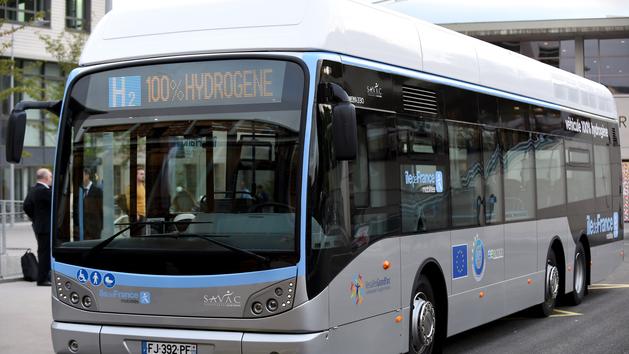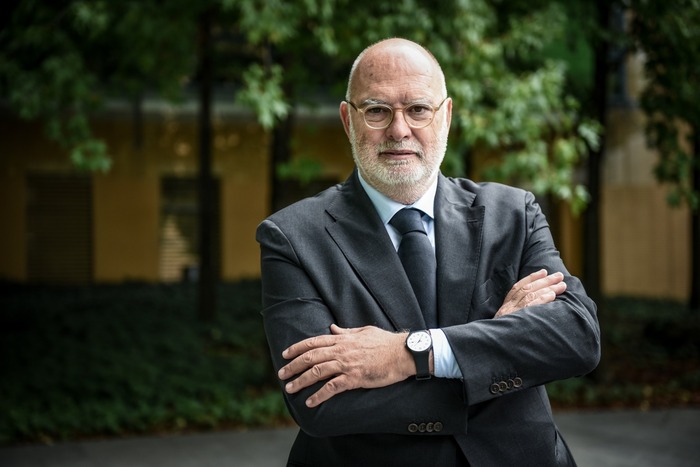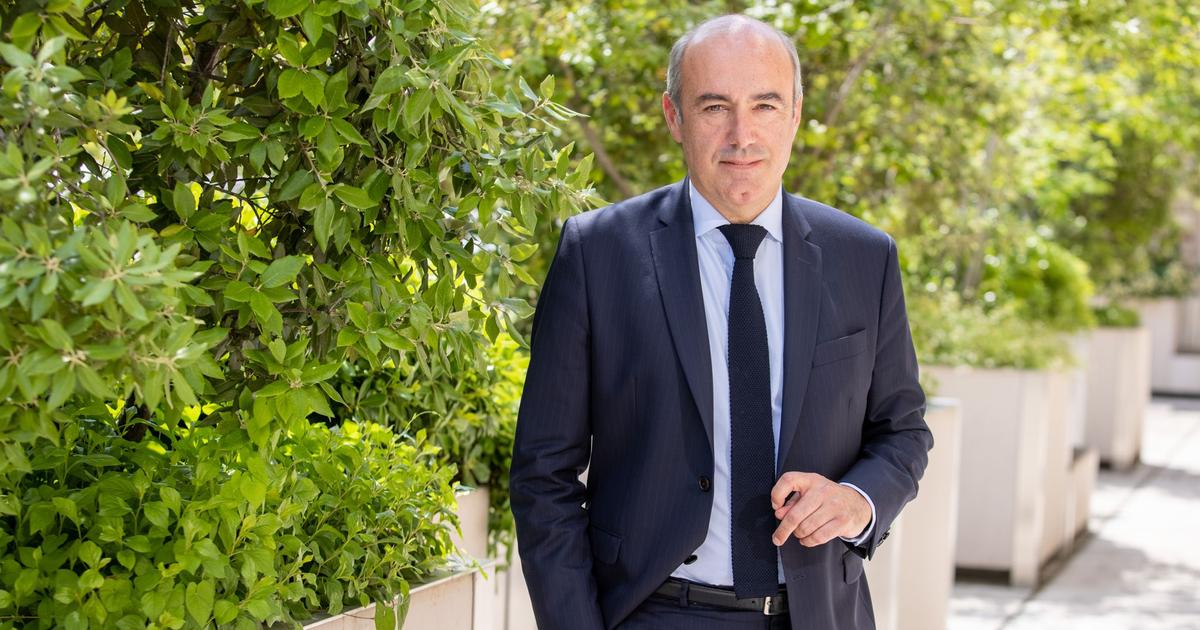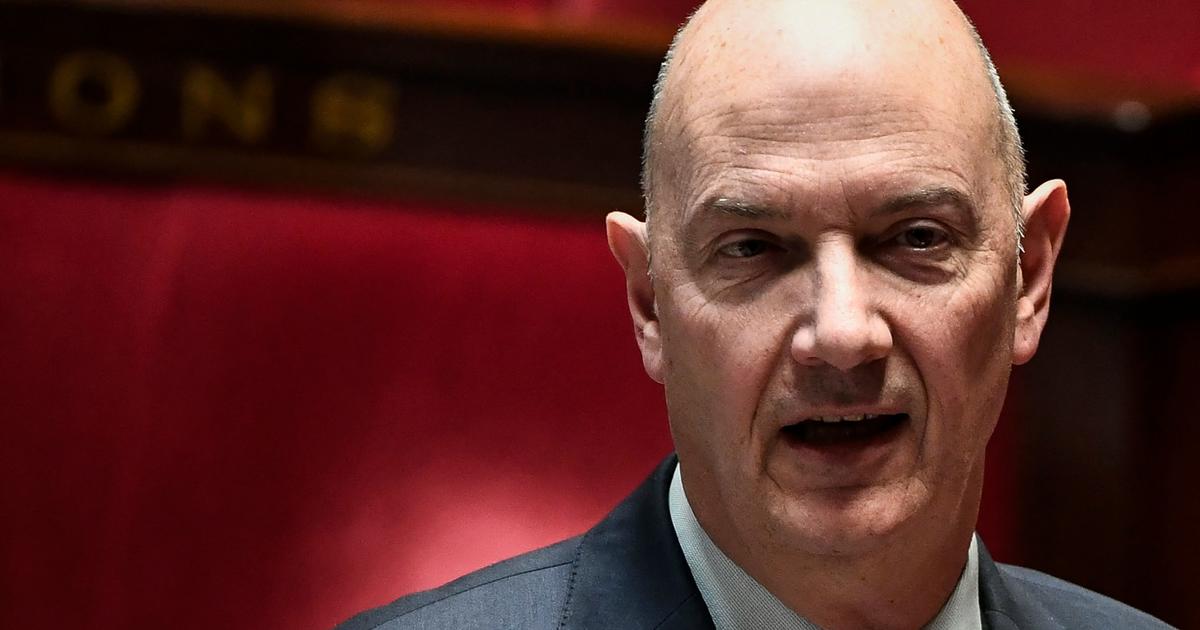The government is betting on “green” hydrogen.
Of the 100 billion euros of the recovery plan, 2 billion are dedicated to the development of a new, cleaner hydrogen sector in France.
This envelope constitutes the first part of a plan of 7.2 billion euros over 10 years.
The latter will be presented next week by the Minister of Ecological Transition, Barbara Pompili, and the Minister of the Economy, Bruno Le Maire.
To read also: Jean Castex: "The recovery plan is up to the exceptional situation"
“We already have hydrogen today. It is a source of energy that is used more for industry and the chemical industry. Today hydrogen is not completely clean. The idea is to make carbon-free hydrogen used primarily for industry. We are investing heavily in hydrogen in connection with the regions to have cleaner energy in transport
,
”
Prime Minister Jean Castex explained Thursday morning on RTL.
The French industry and industrialists have been impatient since the presentation of the hydrogen plan by Nicolas Hulot, then Minister of Ecological Transition, in June 2018. This plan was endowed with 100 million euros.
"
To make France one of the major players in hydrogen and to be able to go it alone, we must put in the means
", explains the current Ministry of Ecological Transition.
Presented as a powerful lever for achieving carbon neutrality and developing a strategic French market, is hydrogen the fuel of the future?
Le Figaro
takes stock of this little-known technology.
What is hydrogen in concrete terms?
Hydrogen is hardly found as such in nature.
“
Hydrogen is present in water.
By passing an electric current through water, we can produce hydrogen by separating it from oxygen,
”explains Daniel Hissel, professor at the University of Bourgogne Franche-Comté and 2020 winner of the innovation medal. of the CNRS.
What is this technology used for?
In concrete terms, hydrogen makes it possible to store electricity.
"We can transform electricity into hydrogen in order, then, to store this electricity"
, summarizes Daniel Hissel.
The stored electricity can then be reused via a hydrogen fuel cell.
In which sectors is hydrogen used?
Hydrogen can be used in the transport sector (cars, buses, trains, trucks, boats, planes).
"
With hydrogen on board a vehicle, in a tank, we can produce electricity, and above all have more autonomy than with simple batteries
", illustrates Daniel Hissel.
Hydrogen can be particularly useful for vehicles that travel long distances.
Hydrogen and electric batteries are seen as two complementary elements to achieve decarbonization.
“
A first wave of electrification has taken place with electric batteries.
To combine long vehicle autonomy, from 500 to 700 km and a record charging time of 5 minutes, we need another form of electrical energy which is supplied by hydrogen
”, explains Pierre-Etienne Franc, director world of the hydrogen energy business of Air Liquide, the largest seller of hydrogen in France.
Hydrogen can also be used in the housing sector.
Take the example of a home with a solar panel on the roof.
"
Hydrogen makes it possible to store renewable electricity, which has an intermittency problem and which can be lost if the network is already saturated
", explains Carine Sebi, professor and coordinator of the Energy for Society Chair at Grenoble École de Management (GEM).
This energy vector can then be reused, for example in winter when there is no more sun, for hot water or heating.
Hydrogen is also used in industry, chemistry (production of fertilizers) or the refining of petroleum products, explains Carine Sebi.
Why set up a hydrogen sector in France?
"It is an issue of ecological and economic transition"
, summarizes Daniel Hissel.
“
Today is a crucial subject.
The challenge for the industrial sector and the mobility sector is to decarbonize hydrogen, that is to say to transform gray hydrogen into low carbon hydrogen
”, continues Carine Sebi.
900,000 tonnes of "gray" hydrogen, coming from fossil fuels (oil, coal, gas), are produced each year in France from hydrocarbons and release nearly 13.5 million tonnes of CO2.
Ultimately, the ambition is to massively develop “green” hydrogen, derived from renewable energies (photovoltaic, wind or hydroelectric with dams), to market it as a substitute for “gray” hydrogen.
From an ecological transition perspective, hydrogen is therefore an essential element because it makes it possible to store “clean” energy, available everywhere.
“
There is sun everywhere.
Hydrogen therefore makes it possible to reduce dependence on fossil fuels and to produce electricity, then store it locally
”, analyzes Daniel Hissel.
Hydrogen will lead to major technological developments and France must be able to be one of the engines
Pierre-Etienne Franc, Global Director of Air Liquide's hydrogen energy business
On the economic side, public funds have been accumulating in many countries in recent years to develop a competitive national sector.
The Netherlands, Korea, Japan and China are already well advanced on the subject.
In France, the hydrogen market was until then "
essentially driven by the activities of French industry
", explains the world director of the hydrogen energy activity of Air Liquide.
From Total to Michelin, via Faurecia and Plastic Omnium, some thirty major groups in the country have brought together 80 SMEs and SMIs in recent months in nearly 160 projects with the support of 54 local authorities.
Initiatives launched across the country costing 32 billion euros.
There are currently several initiatives at the local level.
Some cities, such as Pau, Auxerre, Belfort or Calais, have set up hydrogen bus lines.
In the capital, some taxis also run on hydrogen.
In Auvergne Rhône-Alpes, Carine Sebi cites the “
Zero Emission Valley
” project.
"
This project aims to accelerate the adoption of hydrogen vehicles by building the necessary infrastructure in the region
", she explains.
The budget for this project is 70 million euros over 10 years.
"
For French and international groups to be able to invest massively in France rather than elsewhere, the country must have a dynamic and competitive hydrogen market
," says Pierre-Etienne France.
In addition, hydrogen representing a strategic for the future in the world, "
it will lead to major technological developments and France must be able to be one of the engines
", he assures us.
"
In France, the hydrogen market is still small and the infrastructures are being deployed,
" said Carine Sebi.
What are the limits of the market?
The first limitation of the French market in its current form, hydrogen prices remain high.
"
Prices must fall because hydrogen is more expensive today than what it replaces, oil
", explains Pierre-Etienne Franc.
To reduce production costs and develop a competitive domestic market, it is necessary to carry out projects on a larger scale.
Another challenge to be taken up, as mentioned previously, is the need to produce clean hydrogen, "
either by electrolysis of water from renewable energies, which do not emit CO2, or by capturing the CO2 emitted during production by reforming natural gas to store and / or recycle it,
”continues the manager.
Finally, some engineers are also critical of the efficiency of the hydrogen chain, considered less good than electric batteries.
In other words, if the hydrogen makes it possible to drive a vehicle in complete autonomy over a much longer period of time, the driving speed is itself somewhat reduced.
Is the government's hydrogen plan sufficient?
“These 2 billion are going in the right direction. This is a strong first signal. It must be a first step, ”
says Daniel Hissel.
The researcher recalls that, at the same time, Germany and Portugal devote respectively 9 and 7 billion euros to hydrogen.
Germany, which relies in particular on hydrogen trains, also aims to become the world number one in the sector.
Last July, the French Association for Hydrogen and Fuel Cells (Afhypac) sent several proposals to the government.
The ambition is to produce, by 2030, at least 700,000 tonnes of green hydrogen per year.
This would require a State contribution to the tune of 10.3 billion allowing a strong supply of hydrogen mobility: "
300,000 light vehicles, 5,000 heavy vehicles, 250 trains and 1,000 boats supplied by a total of 1,000 charging stations
", specifies the 'Afhypac.
The hydrogen plan of 7.2 billion euros by 2030 therefore seems to partially meet the hopes of the sector.
This plan will help support research and development, as well as projects from French manufacturers.
Part of the envelope will also contribute to a common European project to enter
"a hydrogen phase of pre-industrialization"
, as explained by the Ministry of Ecological Transition.









